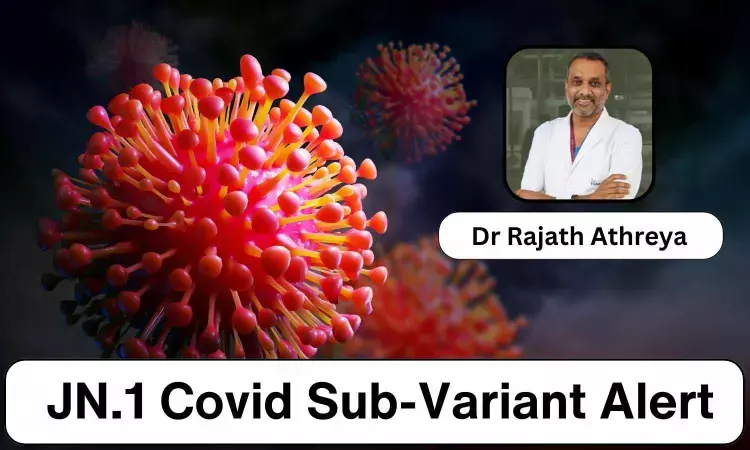- Home
- Medical news & Guidelines
- Anesthesiology
- Cardiology and CTVS
- Critical Care
- Dentistry
- Dermatology
- Diabetes and Endocrinology
- ENT
- Gastroenterology
- Medicine
- Nephrology
- Neurology
- Obstretics-Gynaecology
- Oncology
- Ophthalmology
- Orthopaedics
- Pediatrics-Neonatology
- Psychiatry
- Pulmonology
- Radiology
- Surgery
- Urology
- Laboratory Medicine
- Diet
- Nursing
- Paramedical
- Physiotherapy
- Health news
- Fact Check
- Bone Health Fact Check
- Brain Health Fact Check
- Cancer Related Fact Check
- Child Care Fact Check
- Dental and oral health fact check
- Diabetes and metabolic health fact check
- Diet and Nutrition Fact Check
- Eye and ENT Care Fact Check
- Fitness fact check
- Gut health fact check
- Heart health fact check
- Kidney health fact check
- Medical education fact check
- Men's health fact check
- Respiratory fact check
- Skin and hair care fact check
- Vaccine and Immunization fact check
- Women's health fact check
- AYUSH
- State News
- Andaman and Nicobar Islands
- Andhra Pradesh
- Arunachal Pradesh
- Assam
- Bihar
- Chandigarh
- Chattisgarh
- Dadra and Nagar Haveli
- Daman and Diu
- Delhi
- Goa
- Gujarat
- Haryana
- Himachal Pradesh
- Jammu & Kashmir
- Jharkhand
- Karnataka
- Kerala
- Ladakh
- Lakshadweep
- Madhya Pradesh
- Maharashtra
- Manipur
- Meghalaya
- Mizoram
- Nagaland
- Odisha
- Puducherry
- Punjab
- Rajasthan
- Sikkim
- Tamil Nadu
- Telangana
- Tripura
- Uttar Pradesh
- Uttrakhand
- West Bengal
- Medical Education
- Industry
JN.1 Covid Sub-Variant Alert: What We Know So Far - Dr Rajath Athreya

As we roll into the third year of the COVID-19 era, a plot twist has emerged – a novel character called JN.1. This newcomer is causing a bit of chaos in spots like the US, Singapore, and Kerala, India, sparking a surge in cases that mimic the flu. Everyone's on high alert, wondering what kind of impact this fresh face might have on the ongoing storyline.
JN.1: A Sub-Variant with Distinct Protein Mutations
The JN.1 is not merely a generic variant; it represents a distinct sub-variant of the Omicron strain, more specifically identified as BA.2.86. This categorization indicates that while it shares genetic roots with its predecessors, it has distinct protein mutations that set it apart.
One notable consequence of these mutations is a potentially higher level of infectivity. However, it is essential to note that initial reports from countries like Singapore suggest that, despite its unique genetic makeup, infections caused by JN.1 have not exhibited unusual severity. Most patients are reported to be recovering without significant complications.
Stay Safe with Awareness and Responsible Action
- Be aware of typical COVID-19 signs such as a cold, cough, sore throat, or fever. If you encounter these symptoms, act responsibly by staying at home, wearing a mask, and minimizing interactions with others until the symptoms improve.
- Take measures to ensure your own safety and shield individuals at risk, particularly those with pre-existing medical conditions and those in age groups at higher risk, by adhering to established protocols.
- Maintain composure and stay well-informed as new variants arise to prevent panic and the spread of misinformation. Exercise sensible precautions, such as minimizing attendance in crowded places unless absolutely essential.
- If you exhibit symptoms of COVID-19, promptly seek medical guidance. Healthcare professionals can advise on the necessary steps, including the potential requirement for testing.
The appearance of the JN.1 variant underscores the importance of staying vigilant, yet early information suggests a positive outlook regarding the seriousness of infections.
Stay composed, follow reasonable precautions, and prioritize the health of both ourselves and those in our community to successfully confront the challenges presented by COVID-19 and its various strains.
Dr Rajath Athreya MBBS, MD (Pediatrics), MRCPCH (UK), CCT (UK) is a Senior Consultant and HOD (Paediatrics & Neonatology) at Sakra World Hospital, Bengaluru. He is a well-established clinical lead in Neonatal medicine and Pediatrics having nearly 20 years of experience in the field. He has expertise in all aspects of neonatal medicine including neonatal transport and in all aspects of Pediatrics with a special interest in paediatric endocrinology. He has also been nominated as a member of the Technical advisory committee (TAC) for COVID-19 for the Government of Karnataka.


